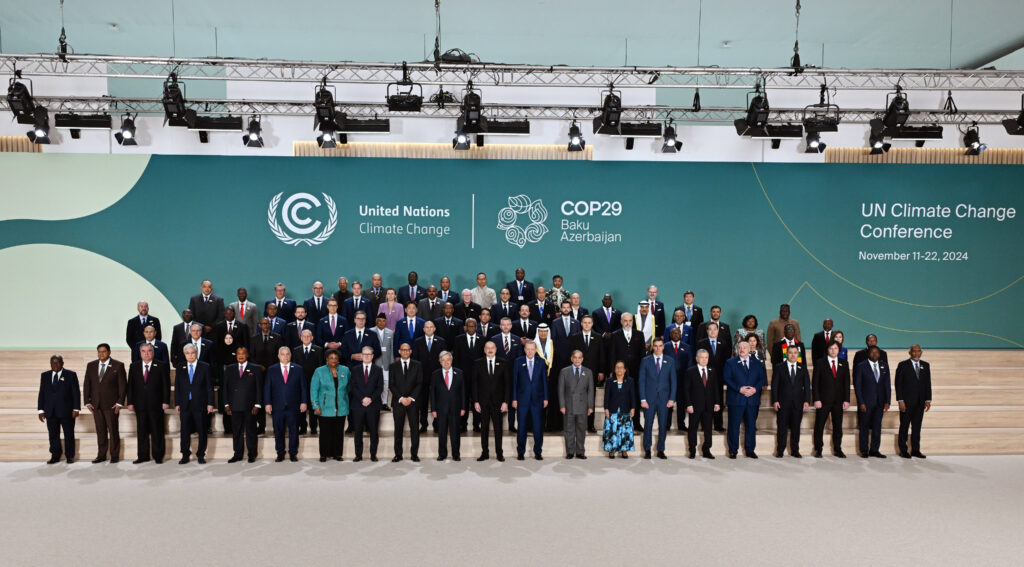Trump’s Tariffs: Targeting Imports But Impacting Americans
| By Eliana Pisons |
Acrimonious National Election Sets Stage for Confrontational International Trade Policies
The 2024 U.S. presidential election resulted in the re-election of former President Donald Trump, contentiously setting the stage for his return to the White House. As President-elect, Trump has expressed his intent to revisit several policy priorities from his previous term, including a focus on influencing America’s international trade policies through the implementation of tariffs and protectionist measures.
Collateral Damage: Trump’s Tariffs Would Take Toll on US Businesses and Consumers
President-elect Donald Trump’s proposed reintroduction of sweeping tariffs has sparked significant concern among American businesses. His proposed tariffs include a universal 10% tax on all imports and a targeted 60% tariff on Chinese goods. While Trump argues these measures could boost domestic production and reduce trade deficits, the potential drawbacks—higher costs for businesses and consumers—are raising alarms across industries.
Passing the Buck: How Business Tariffs Drive Up Consumer Prices
Tariffs function as taxes on imported goods, which are typically paid by American companies purchasing these products. Businesses reliant on imports, from electronics to textiles, will likely face increased operating costs. Companies often offset these costs by passing them onto consumers, as seen previously when domestic producers also raised prices to match higher import costs. Additionally, industries with complex global supply chains may struggle to adapt quickly, leading to temporary shortages or production delays.

Consumer Price Increases: Foreign Tariffs, Domestic Impacts
Economists estimate that Trump’s tariff proposals could lead to a 1.4% to 5.1% increase in US consumer prices, costing households an additional $1,900 to $7,600 annually. Essential goods, including clothing, electronics, and automotive parts, are among the most likely to see price hikes. This burden is particularly concerning for lower-income households, which would bear a disproportionate impact. Middle-class families may also feel the strain, as rising prices further reduce their disposable income and savings.
Cause and Effect: Economic and Trade Ramifications of Trump’s Tariffs
While proponents argue that tariffs could encourage domestic manufacturing, the broader economic consequences may include disrupted supply chains and reduced international trade. Retaliatory tariffs from trading partners could further complicate the situation, limiting export opportunities for American producers. Moreover, the uncertainty surrounding these policy changes may discourage foreign investment in the United States, potentially hindering job creation and economic growth.
Pivoting Amid Protectionism: US Businesses Adapt Sourcing Strategies
Companies are beginning to explore alternative sourcing strategies, investing in automation, and reevaluating supply chains to mitigate the impact. However, these adjustments require time and resources, which smaller businesses may lack. Larger corporations may have an advantage in weathering these changes, potentially increasing market consolidation. Government support programs for affected industries could help ease the transition, but policymakers must carefully design such initiatives to avoid unintended consequences.
Closing Thoughts: Why Tariffs May Do More Harm Than Good
While the proposed tariffs aim to bolster domestic production and address trade imbalances, the short-term implications for businesses and consumers are concerning. Companies will likely face higher operational costs, and consumers may experience increased prices, underscoring the need for careful consideration of these policies’ long-term economic impact. Stakeholders should engage in open dialogue to find a balanced approach that supports domestic industries without causing undue harm to businesses and consumers alike.

The illustrations in this article were created using an AI image generator. All illustrations are ©Intelliwings.



